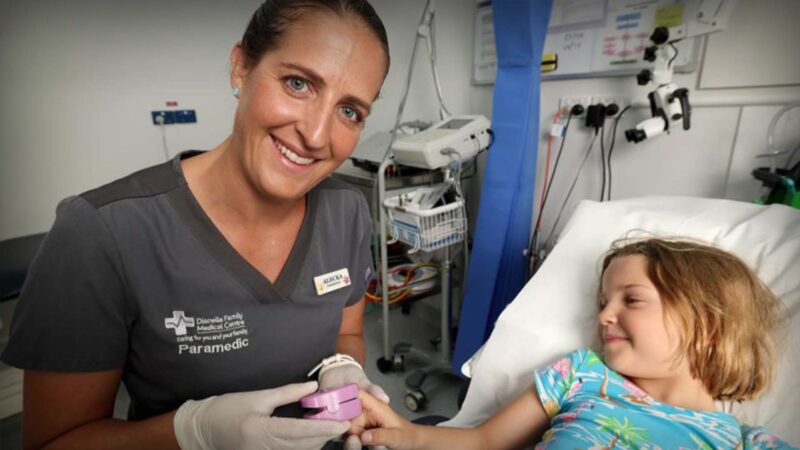According to a prominent paramedicine academic and researcher, paramedics have the potential to provide much-needed care in the community, changing the traditional healthcare model. Research points to paramedics having a wider healthcare workforce impact based on their ability to identify and fix problems 24/7.
Dr. Brendan Shannon is Head of Postgraduate Programs in the Department of Paramedicine at Monash University and a member of The Australasian College of Paramedicine. His interests including refining healthcare models, to ensure underserved communities receive requisite care. These alternative care pathways, like outreach programs, can work out of hospitals to provide care in underserved communities with social and complex chronic conditions.
Dr Shannon states, “Paramedics can be utilised in a proactive outreach manner, not just responding to emergency calls, to provide care to those who need it most. The role of paramedics needs to further evolve to see patients with chronic diseases so that they don’t end up in an emergency situation, rather than only responding to emergencies.”
Dr Shannon is a registered paramedic and academic innovating new education programs and paramedicine models of care and career pathways – including as the Education lead of the $20.3 million Australian-first Paramedic Practitioner Program being delivered by Monash University in partnership with Ambulance Victoria and Safer Care Victoria.
Australian Health Journal met with Dr Shannon to health about his research in alternative care pathways and community medicine, involving paramedic roles.
You Might also like
-
Diary of a Paramedic in a primary health care clinic
Alecka Miles is a lecturer at Edith Cowan University and works as a paramedic in a multidisciplinary team at Dianella Family Medical Centre in Metropolitan Perth, Western Australia.
Community paramedic roles have a history in Australia, dating back to 2007 in New South Wales and followed by similar initiatives in South Australia and New Zealand. Alecka’s position emerged after she sought to evaluate how paramedics could integrate into general practice, ultimately leading to a job offer post-COVID lockdown in 2020. Her skills, particularly in cannulation, proved valuable as healthcare shifted towards primary care.
-
Inaugural report into Australasian Paramedicine Workforce Survey report to aid workforce planning
In a milestone for paramedicine, the Australasian College of Paramedicine earlier this year released the first report of a landmark three-year study identifying and exploring trends that affect the Australasian paramedicine workforce.
The inaugural Australasian Paramedicine Workforce Survey report 2023-24 explores the demographic, career trajectory, work motivations and conditions for those working in clinical, management and educational capacities within the paramedicine workforce of Australia and Aotearoa New Zealand. -
A New Era in Primary Health Care Nursing
Coinciding with this year’s International Nurses Day, this week’s Federal Budget has had some significant outcomes for the primary health care, nursing workforce.
The Federal Budget delivered on 9th May 2023, APNA believes will strengthen Australia’s primary health care (PHC) system by addressing growing nursing shortages, seeing more nurses hired where they are needed, and better utilising the largest workforce in PHC of nearly 100,000 nurses to their full potential to reduce the pressure on the health system.



